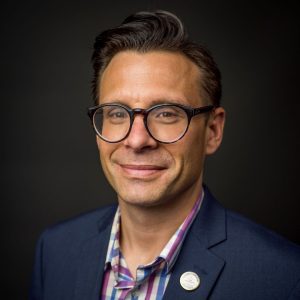In his book, The Culture Code, Daniel Coyle defined organizational culture as “a set of living relationships working toward a shared goal.” This is a value-neutral definition. When the living relationships are unhealthy and subset groups of people have their own shared agendas, culture is created—but not the kind of healthy culture needed for organizational effectiveness. When this kind of poisonous culture exists, missional clarity or visionary leadership are largely wasted efforts. John Maxwell said it succinctly, “Culture eats vision for lunch.”
Pandemic stress, political turmoil, and social unrest have revealed the true cultural climate in churches and ministry organizations. In many cases, these external pressures have resulted in stress fractures—widening rifts as people separate according to their passions and agendas. Rather than healthy relationships working toward shared goals, too many churches and organizations have discovered their pseudo-community was a façade. Their culture was greenhouse-ready, only able to thrive in a controlled environment. Sadly, many are now reeling with conflict, division, and attrition.
What can be done to improve your corporate culture, the way your community lives and works together? One common response is to focus on the first part of the definition—living relationships. Improving culture clearly involves confronting unhealthy relational patterns, as well as affirming and rewarding healthy relational behavior. Our Christian faith provides motivation and guidance to do this as we adopt and demonstrate Christian virtues described in the Bible. That’s a worthy beginning. Creating healthy culture—what some people like to call community—has a strong relational component.
But the other part of the definition is also significant. We must also articulate and adopt shared goals. Healthy organizational culture is not a perpetual relationship retreat; it’s about coming together to do something. That something is accomplishing shared goals which gives us a sense of shared fulfillment and success.
Creating a healthy corporate culture in a church or ministry organization is about both healthy relationships and kingdom-focused goals. It is about treating each other like Christians are supposed to and working together on kingdom-focused goals. It requires rejecting self-serving behavior and resisting the temptations of lesser agendas. If community dysfunction is eating your vision for lunch, improving relationships and clarifying functional goals will improve your organizational culture and get you on a better path forward.
Read More

Hope in Suffering
Gateway student Matt Bodden is an evangelist who is ready to answer the question of suffering with the gospel.

The Gateway Journal of Theology Inaugural Issue
Read all new articles in the inaugural issue of The Gateway Journal of Theology.
Listen
Prophets | Daniel Part 2
Now with the historical portion of Daniel done, Dr. Wegner takes us through the visions of beasts and years. All these figures intending to show us something. What does it all tell us about God?

Theology and Missiology with Dr. Peter Lillback
Rev. Dr. Peter Lillback, president of Westminster Theological Seminary, PA, and founder of The Providence Forum, joins Dr. Hopkins to chat about the inclusion of young children during the main services in church, the religion and theology of George Washington, and the

Watch

Jonathan Edwards and the Asbury Revival
Chris Chun and Chris Woznicki discuss the signs of true revival, signs of the work of the Holy Spirit, and why it is important to critically assess the characteristics of revival in a spirit of charity.

Jonathan Edwards and the Baptists | Douglas Sweeney, Nathan Finn and Chris Chun
Dr. Douglas Sweeney and Dr. Nathan Finn joined Dr. Chris Chun for a panel discussion on Jonathan Edwards, recorded live at the SBC Annual Meeting in Anaheim.




